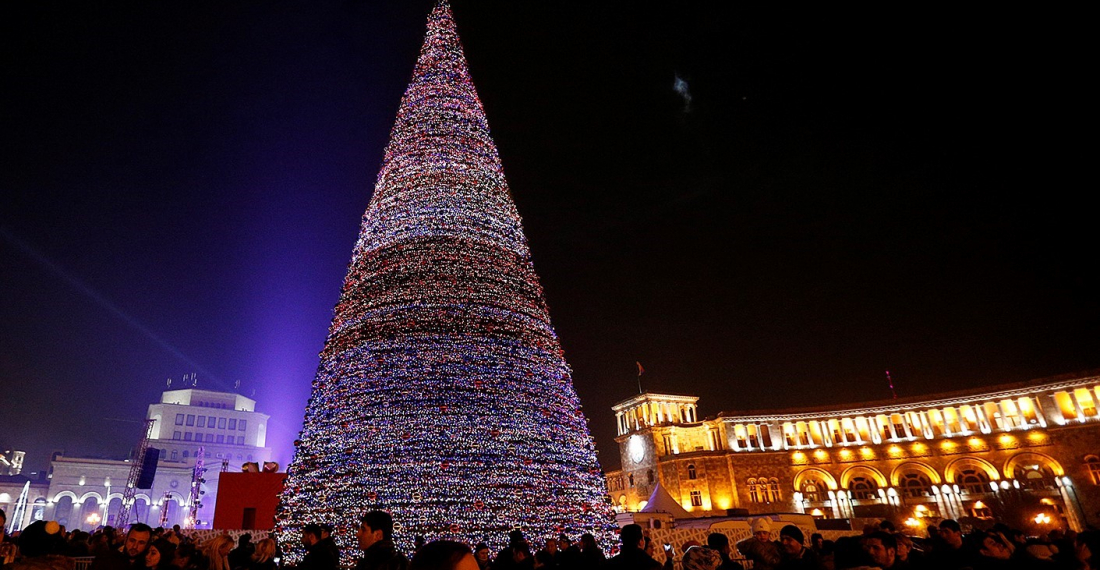The spirit of the festive season has arrived in the Caucasus region, where the main celebration is the new year, with Christmas only celebrated formally in Armenia and Georgia where it is marked in eartly January according to the Orthodox calander. At the centre of the celebrations is the Christmas tree - more often referred to in the region as the "new year tree". The putting up of the tree usually marks the end of the political year, and the start of a short break when focus is more on family, friends and merriment.
Throughout the region, 2018 has been a significant year with important political and social developments. Nowhere more so than in Armenia, where a political earthquake in the spring - quaintly called by its leaders as a "velvet revolution", was truly the end of an era. What happened in Armenia in 2018 will have an impact on the country, and the wider region for many years to come.
It was therefore appropriate that prime minister Nikol Pashinyan was on hand on Yerevan's Republic Square on Friday to launch the festivities, which included a concert and fireworks.
source: commonspace.eu
photo: Prime Minister Nikol Pashinyan was on hand on Friday (21 December) to launch the "new year tree" in Yerevan's main square. (picture courtesy of the press service of the government of Armenia).






